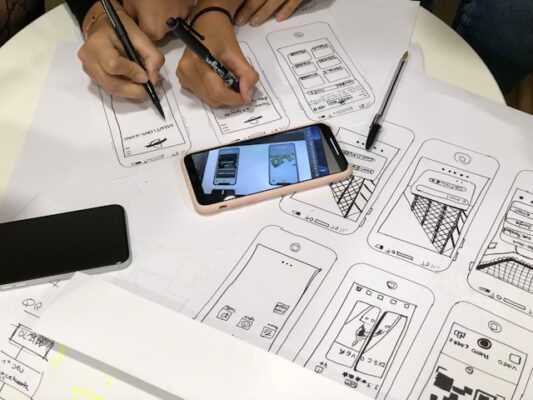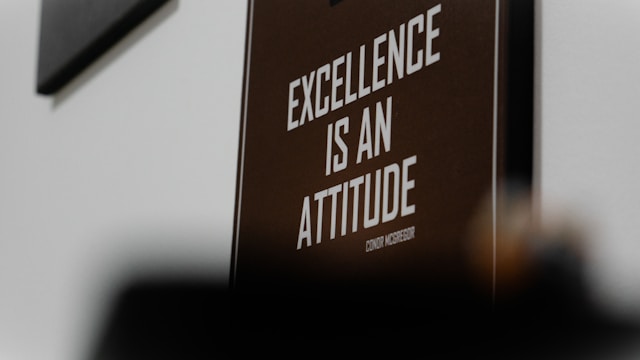Develop core skills at Talk UX
Whether you’re starting out, switching careers or levelling up, Talk UX 2025 is packed with practical sessions that’ll help you grow. Every talk and workshop builds core skills identified by the World Economic Forum as essential for today’s workplace.
From Agentic AI to inclusive research, systems thinking to creative confidence – you’ll leave with real-life insights, techniques and frameworks you can use straight away. Plus, you’ll connect with brilliant people who’ll inspire you to push your practice further.
Here’s how our programme helps you build the skills that matter:
- Design and UX Excellence
- AI, Data Analytics and Measurement
- Creative and Strategic Thinking
- Leadership, Collaboration and Team Development
- Service Excellence and User Empathy
1. Design and UX Excellence
Advancing the craft of human-centred design to create better products and services
WEF skills you’ll gain:
- Design and user experience (primary)
- Service orientation and customer service
- Dependability and attention to detail
- Quality control

Design as Protest: Practicing Ethical UX in Flawed Systems
– Marley Dizney Swanson
Develops ethical design capabilities and frameworks for navigating complex design challenges within imperfect organisational systems.
Putting the User at the Centre of Your Design System
– Alex Edwards & Lucy Blackwell
Strengthens design system implementation through user-centred approaches that enhance product adoption and stakeholder engagement.
Power, Politics, and the Broken Promises of (UX) Design
– Julia Petretta
Power, Politics, and the Broken Promises of (UX) Design – Julia Petretta
Builds strategic thinking about the economic and political forces shaping design work, enabling better value creation.
You Are the User: Applying UX Heuristics to ‘Design Your Life’
– Lilymae Prescott
Extends design thinking beyond products to personal effectiveness, improving both professional practice and wellbeing.
The Role of UX in Digital Rights
– Arda Awais
Develops ethical design practices around privacy, accessibility and user rights in digital products.
Holistic Tech: Designing Systems that Care
– Rai Gethers
Advances inclusive design practices that centre emotional wellness, accessibility and cultural context.
2. AI, Data Analytics and Measurement
Building capabilities in artificial intelligence, data-driven decision making, and impact measurement
WEF skills you’ll gain:
- AI and big data (primary)
- Analytical thinking (primary)
- Technological literacy
- Systems thinking

Photo by Alina Grubnyak on Unsplash
Algo-r-(h)-i-(y)-thms, 2018. Installation view at ON AIR, Tomás Saraceno’s solo exhibition at Palais de Tokyo, Paris, 2018.
Designing for trust in Agentic AI
– Zaianne Sparrow
Prepares teams to design trustworthy AI systems as automation becomes increasingly autonomous.
Just take a picture… the research behind our GenAI image recognition tool
– Rhea Ebanks-Simpson & Rebecca Gordon-Watts
Demonstrates practical AI implementation in public services, from research to deployment and measurement.
What (not) to measure: How do we know that UX has really had an impact?
– Clara Kliman-Silver
Develops skills in selecting and communicating metrics that demonstrate design value to stakeholders.
Design actually can save lives… but not by itself
– Daniel Burka & Mahima Chandak
Shows how to measure real-world outcomes, not just outputs, in high-impact design work.
3. Creative and Strategic Thinking
Fostering innovation through futures thinking, systems analysis, and creative problem-solving
WEF skills you’ll gain:
- Creative thinking (primary)
- Systems thinking (primary)
- Analytical thinking (primary)
- Curiosity and lifelong learning
Time machines for problem solvers: Futures Thinking in action
– Sayani Mitra
Equips teams with strategic foresight methods to tackle complex problems and build design resilience.
Brighton 2050 – Designing a city that designs back
– Shivani Sundar
Develops speculative design skills for innovative thinking and collaborative solution generation.
Mapping the systems that bind us: Introduction to rapid systems mapping
– Ghaith Nassar
Builds systems thinking capabilities to understand complex challenges and identify intervention points.
‘But I’m not creative’: The role of creativity and connection in content design
– Lauren Pope
Nurtures creative confidence and collaborative creativity in analytical roles.
Your city/landscape/environment is a stakeholder, let it speak
– Ellen de Vries
Develops innovative approaches to stakeholder engagement by treating environments as active participants.
4. Leadership, Collaboration and Team Development
Building cross-functional collaboration, mentoring capabilities, and inclusive leadership
WEF skills you’ll gain:
- Leadership and social influence (primary)
- Teaching and mentoring (primary)
- Talent management
- Resilience, flexibility and agility
- Motivation and self-awareness
- Resource management and operations
Bridging the gap: The UX designer’s role in cross-functional collaboration
– Cindy Yeh
Strengthens team collaboration through creative workshop techniques that unite diverse stakeholders.
Redesigning our inner place: Unlearning bias to build responsible futures
– Sandra González
Develops inclusive leadership through bias awareness and responsible design practices.
You’re in the room — now what? Thriving as a junior UXer
– Dhiraj Vishwakarma
Builds confidence and strategic thinking in early-career professionals through practical career development insights.
How do we execute a meaningful discovery phase when time and budget are limited?
– Chloe Ward-Smith
Develops resource management and prioritisation skills for effective project delivery under constraints.
5. Service Excellence and User Empathy
Enhancing customer service, empathetic listening, and user advocacy capabilities
WEF skills you’ll gain:
- Empathy and active listening (primary)
- Service orientation and customer service (primary)
- Analytical thinking
- Design and user experience
Unexpected UX: Streamlining CX with design thinking
– Eniola Ayedun
Transforms customer support into strategic insight generation through design thinking application.
Co-designing the Period Symptom Checker
– Beth Granter
Demonstrates inclusive co-design methods with diverse stakeholders for health service innovation.
Making research accessible: Lessons learned so far
– Sharon Webster
Builds inclusive research practices and accessibility advocacy skills across organisations.
Everything is an interface: Designing place-based systems that enable connection
– Jenni Lloyd
Develops understanding of service design in complex public sector and community contexts.
Get your ticket today
Choose a 1-day or 2-day ticket to Talk UX, with special discounts for folks who are self-funding.
Buy Ticket

